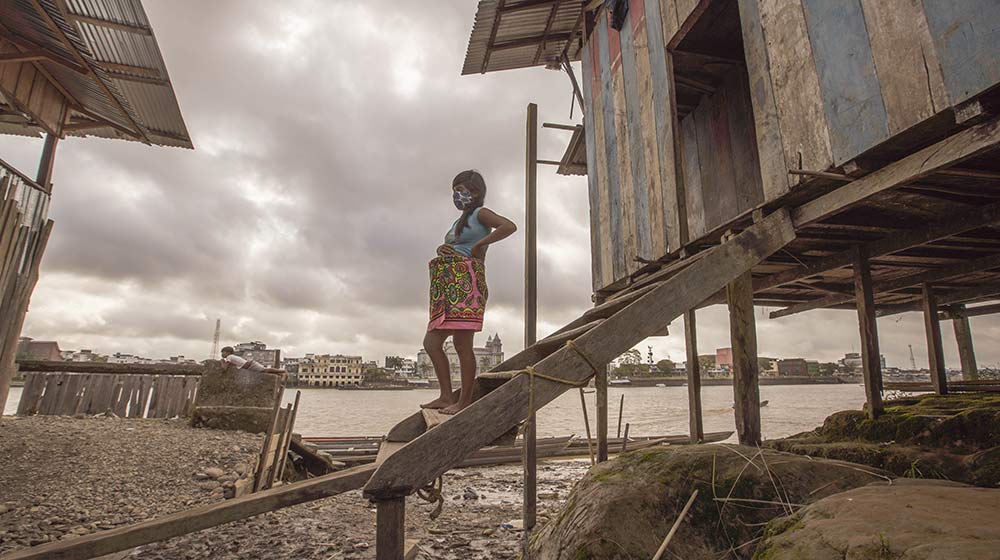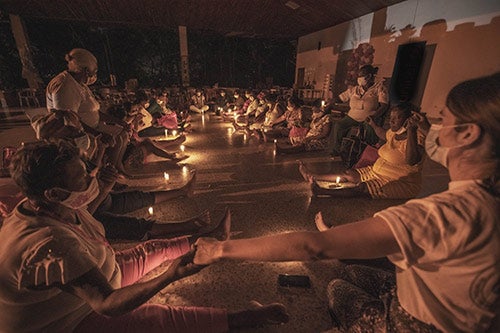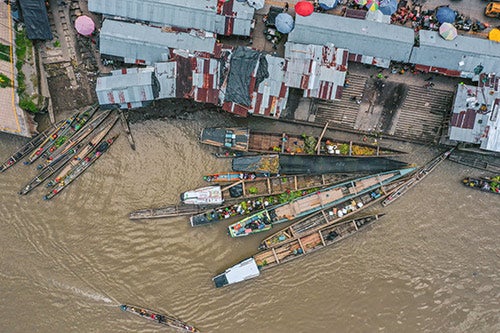Partnering with traditional birth attendants to reach Afro-descendant and indigenous women in Colombia

BOGOTA, Colombia – “Colombia is a multicolored country, with varied customs, practices, and celebrations… Within that level of inclusion, we need to add traditional birth practices,” said Ledy Manuela Mosquera Moreno. Ms.Mosquera is a nurse and the executive director of the Association of the Interethnic Network of Midwifery Practitioners of the Department of Chocó.
Such efforts are important in Afro-descendant and indigenous communities. The maternal death rate in Colombia is falling, but many Afro-Colombian and indigenous communities have not been seen these improvements. These communities see maternal death rates two to four times higher than other populations, according to the health ministry; this situation has worsened under the COVID-19 pandemic.

There are many barriers to high-quality maternal health care in these communities. This includes challenging geography, economic marginalization, and the limited presence of health institutions and services. Also, accompanied by cultural hurdles, such as fear of Caesarean sections, shame seeking help outside the community, and language barriers. This is where traditional birth attendants can help in Colombia.
“Traditional midwifery goes beyond assisting with a delivery,” said Ms. Mosquera. Her organization works with UNFPA to equip Afro-Colombian and indigenous birth attendants and community health workers with modern skills and tools. “It is advising, accompanying, guiding women, families, and the community in all matters of sexual and reproductive health.”
Respect and trust for traditional midwives in Colombia
UNFPA is also working with traditional birth attendants in Colombia to reduce maternal death among indigenous populations. This work is part of the Global Action Plan for Healthy Lives and Well-being for all, also known as the GAP.
The GAP is a collaboration with three other UN agencies, the health ministry, and local authorities. Through this partnership, the Pan American Health Organization works with health systems to improve maternal health and health systems; UNICEF mobilizes resources to improve training standards for health teams and traditional practitioners, and the World Food Programme works to strengthen food and nutritional security in remote communities. UNFPA’s contribution is training community workers and traditional birth attendants in Colombia’s indigenous Arhuaca and Wayuu communities. UNFPA helps health facilities and practitioners embrace an intercultural and human rights-based approach to health care.
This approach made all the difference to María, who was reluctant to go to the nearby Dusakawi maternity clinic in northern Colombia – even when she was in active labor. But community health worker, Leyla, reassured her that her indigenous traditions and perspective would be respected if she were to accept medical assistance. María felt she could trust Leyla, a nurse not only trained in western medicine but also a member of the community honored by elders of the Wayúu as a traditional practitioner.

An ambulance took María to the clinic. In the clinic, she had access to an interpreter and slept in a bed like the hand-woven hammocks, ‘chinchorros’, in her home. There, she gave birth to a healthy baby boy.
Working together
Collaborations between health systems and indigenous communities are being scaled up throughout northern Colombia, through the GAP program, launched in 2015.
And UNFPA’s other partnerships, such as with Afro-Colombian leaders like Ms. Mosquera, are also having an impact.
“Why is it important? Because this allows a link between ancestral knowledge and all actions that in one way or another are articulated within the health services,” Ms. Mosquera says.
She gives a lot of credit to community members themselves, who are working hard to bridge gaps. Such as “the midwife who considers herself trained from the ancestral perspective yet with the necessary skills and techniques to adequately assist a delivery.”
UNFPA.org originally published a version of this story.